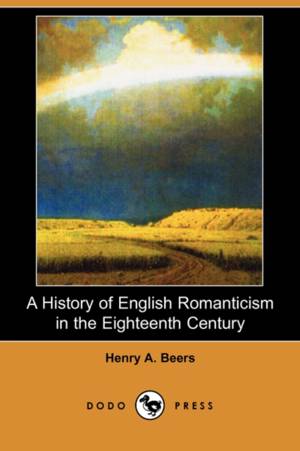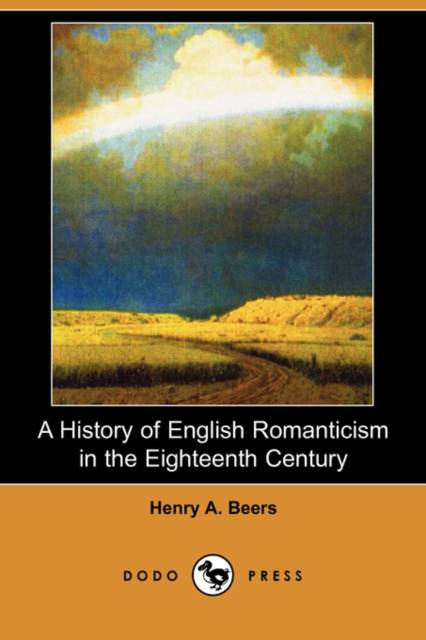
- Afhalen na 1 uur in een winkel met voorraad
- Gratis thuislevering in België vanaf € 30
- Ruim aanbod met 7 miljoen producten
- Afhalen na 1 uur in een winkel met voorraad
- Gratis thuislevering in België vanaf € 30
- Ruim aanbod met 7 miljoen producten
Zoeken
A History of English Romanticism in the Eighteenth Century (Dodo Press)
Henry A Beers
Paperback | Engels
€ 25,45
+ 50 punten
Omschrijving
"Historians of French and German literature are accustomed to set off a period, or a division of their subject, and entitle it "Romanticism" or "the Romantic School. " Writers of English literary history, while recognizing the importance of England's share in this great movement in European letters, have not generally accorded it a place by itself in the arrangement of their subject-matter, but have treated it cursively, as a tendency present in the work of individual authors; and have maintained a simple chronological division of eras into the "Georgian, ", the "Victorian, " etc. The reason of this is perhaps to be found in the fact that, although Romanticism began earlier in England than on the Continent and lent quite as much as it borrowed in the international exchange of literary commodities, the native movement was more gradual and scattered. It never reached so compact a shape, or came so definitely to a head, as in Germany or France. There never was precisely a "romantic school" or an all-pervading romantic fashion in England."
Specificaties
Betrokkenen
- Auteur(s):
- Uitgeverij:
Inhoud
- Aantal bladzijden:
- 320
- Taal:
- Engels
Eigenschappen
- Productcode (EAN):
- 9781406537321
- Verschijningsdatum:
- 22/06/2007
- Uitvoering:
- Paperback
- Formaat:
- Trade paperback (VS)
- Afmetingen:
- 152 mm x 229 mm
- Gewicht:
- 471 g

Alleen bij Standaard Boekhandel
+ 50 punten op je klantenkaart van Standaard Boekhandel
Beoordelingen
We publiceren alleen reviews die voldoen aan de voorwaarden voor reviews. Bekijk onze voorwaarden voor reviews.











